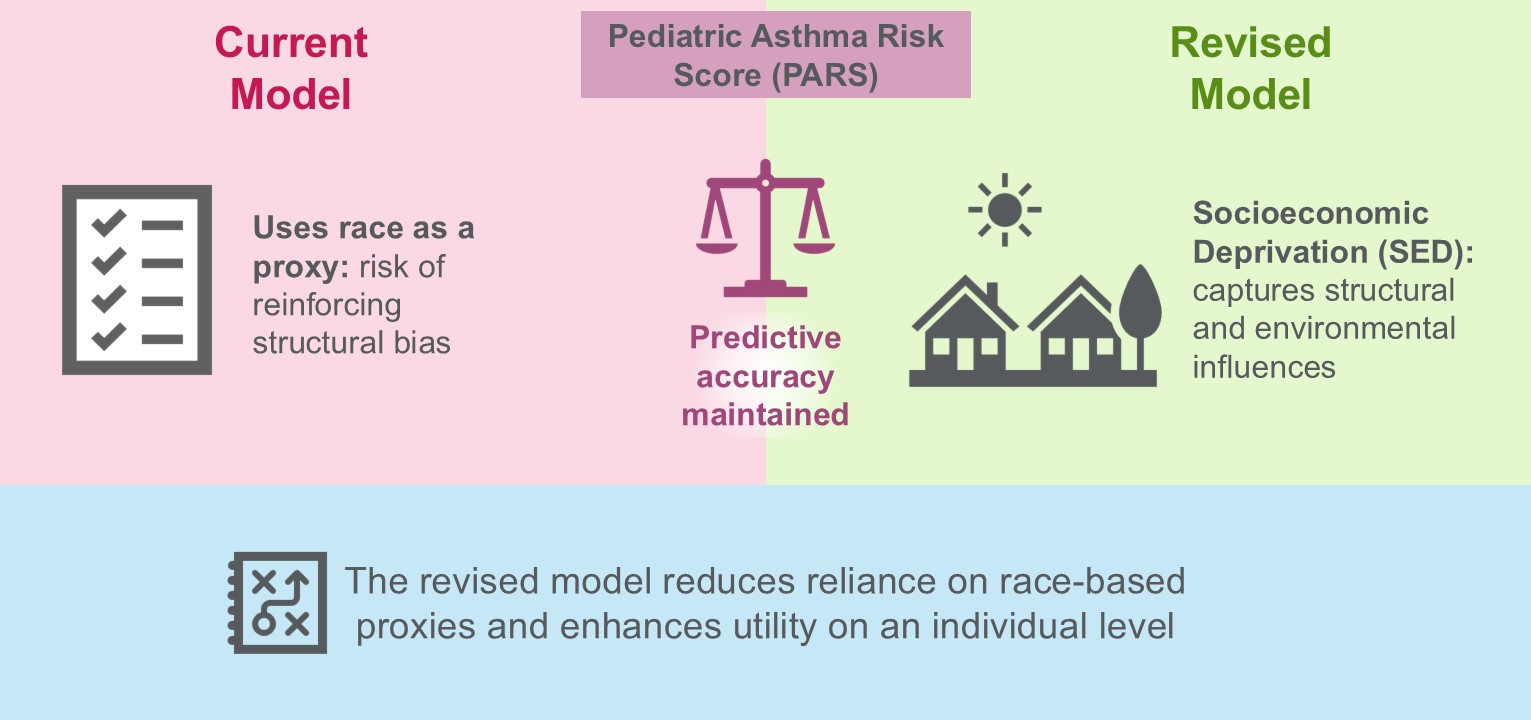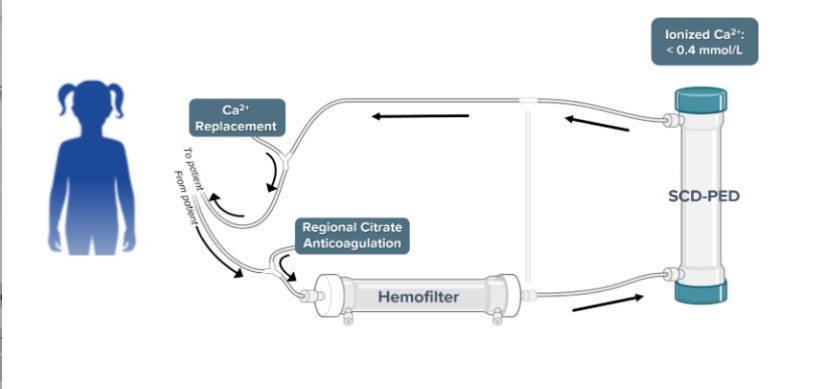TSLP Inhibitors Emerge as Potential Therapy for Eosinophilic Esophagitis
Research By: Yrina Rochman, PhD | Marc Rothenberg, MD, PhD
Post Date: September 12, 2023 | Publish Date: Sept. 12, 2023
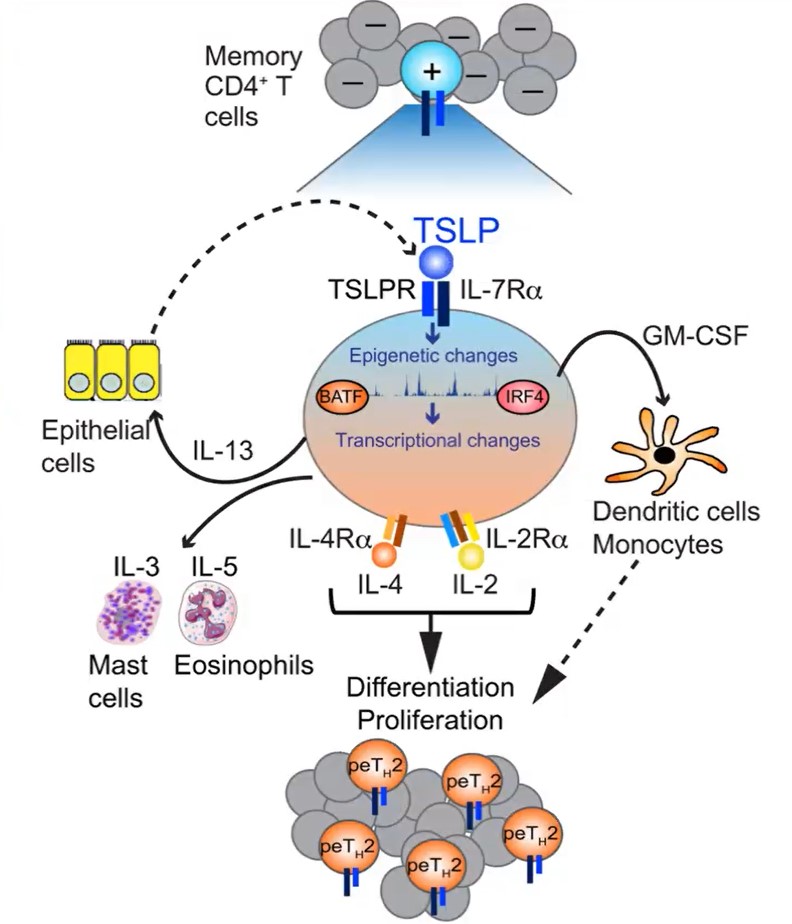
Study in Science Signaling supports concept of both a blood test and a novel treatment
A detailed examination of how the cytokine TSLP enhances allergic inflammatory response in human immune cells suggests that a blood test can be developed to identify a subset of people with eosinophilic esophagitis (EoE) who may benefit from high-cost monoclonal antibody treatments.
The study, published online Sept. 12, 2023, in Science Signaling, was led by first author Yrina Rochman, PhD, and corresponding author Marc Rothenberg, MD, PhD, director of the Division of Allergy and Immunology. Contributing co-authors from Cincinnati Children’s included Artem Barski, PhD, Michael Kotliar, MS, Netali Ben-Baruch Morgenstern, PhD, and Ting Wen, PhD.
What is TSLP?
Thymic stromal lymphopoietin (TSLP) is a cytokine known to induce Type 2 immune responses, primarily by prompting the development of memory T cells primed to attack pathogenic cells.
Interest in treatments to block the influence of TSLP in various diseases has grown in recent years. In 2021, the U.S. Food and Drug Administration approved the use of the monoclonal antibody tezepelumab as an add-on treatment for people with severe, uncontrolled asthma.
A direct role in EoE
Unlike studies based heavily on mouse models, Rochman, Rothenberg and colleagues looked at how TSLP directly affects human memory CD4+ T cells in tissue samples for people with EoE. The team found higher numbers of cells expressing the TSLP receptor in EoE samples versus healthy controls. They also found that TSLP was capable of making even more of its receptor cells as part of the inflammatory process.
After analyzing how TSLP modified the expression of 212 genes, the team reported a notable enrichment of the transcription factors BATF and IRF4. This created a “feed-forward loop” that resulted in a cascade of other reactions all of which contribute to allergic inflammation. Importantly, the team found that the number of circulating T cells induced by TSLP correlated with the number of eosinophils in the biopsies.
“In light of these results and the high clinical cost of anti-TSLP biologics, our study expands the rationale for a noninvasive screening test before treatment, aiming to offer anti-TSLP treatment especially to patients with memory CD4+ T cells that exhibit high responsiveness to TSLP,” Rothenberg says. “It also is possible that our findings can be extended to other allergic disorders that involve a high frequency of TSLP-responsive cells.”
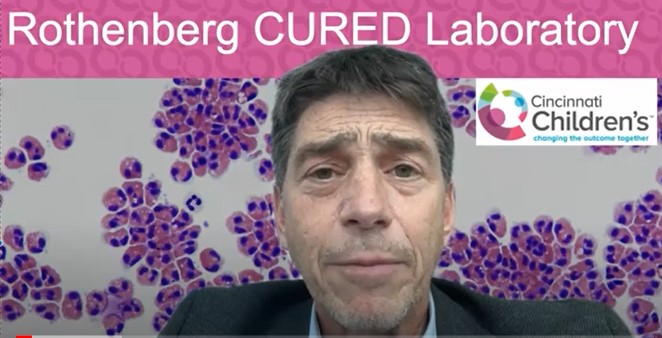
| Original title: | TSLP shapes the pathogenic responses of memory CD4+ T cells in eosinophilic esophagitis |
| Published in: | Science Signaling |
| Publish date: | Sept. 12, 2023 |
Research By

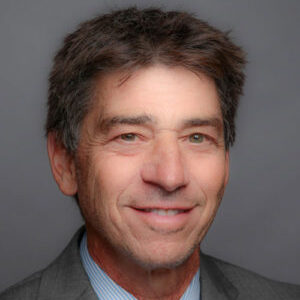
The Rothenberg CURED Research Laboratory, supported by the Campaign Urging Research for Eosinophilic Diseases (CURED), is focused on elucidating the mechanisms of allergic responses, especially in mucosal tissues such as the gastrointestinal tract and lung.




